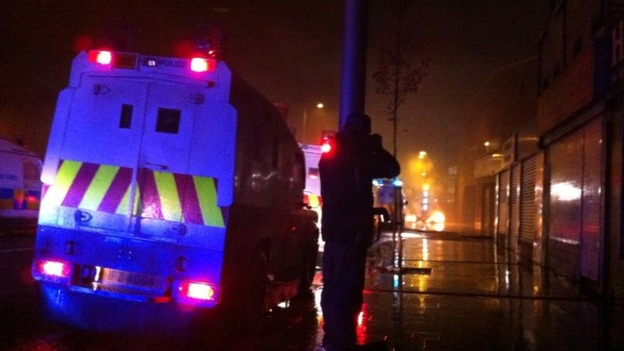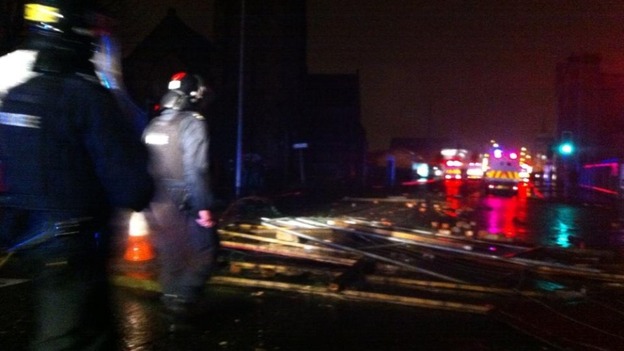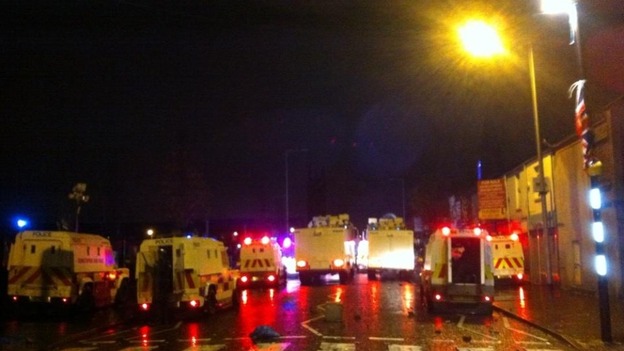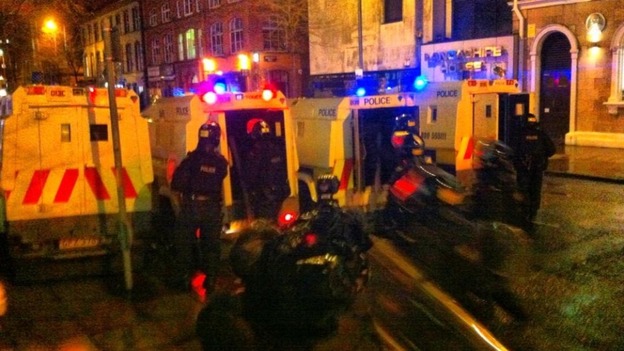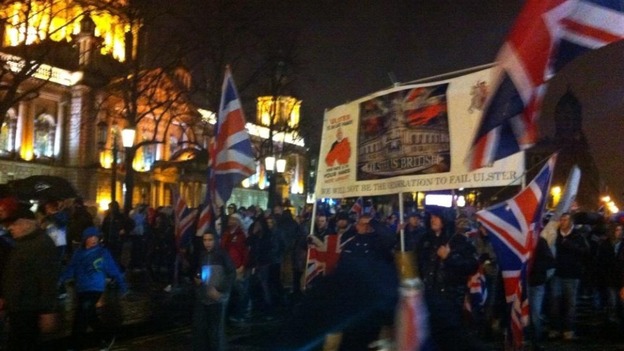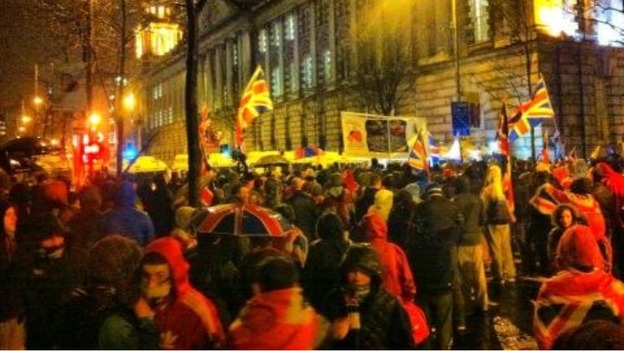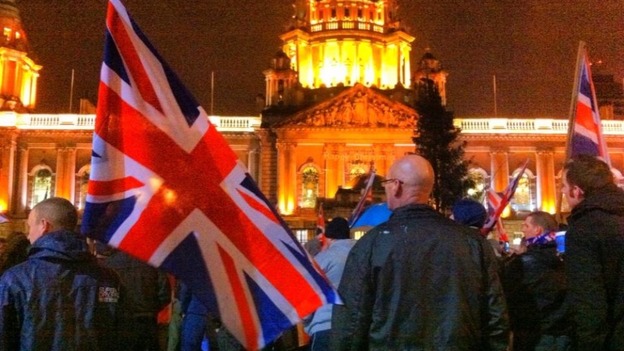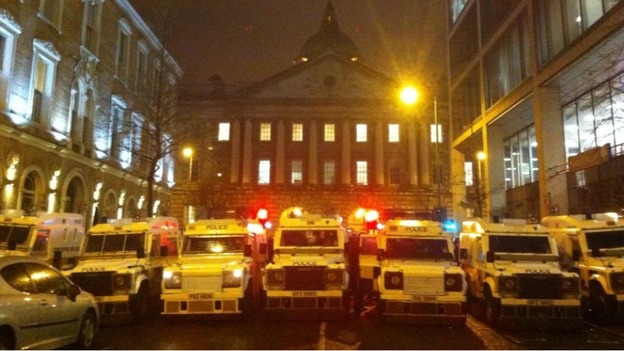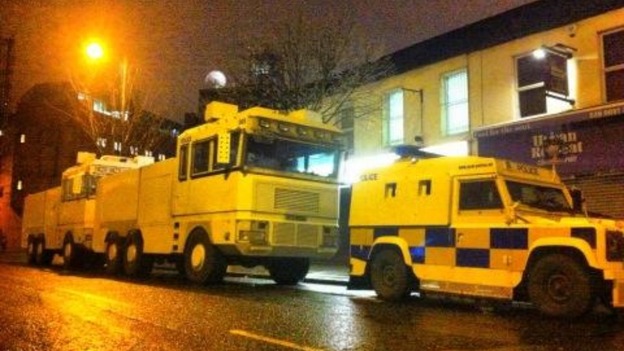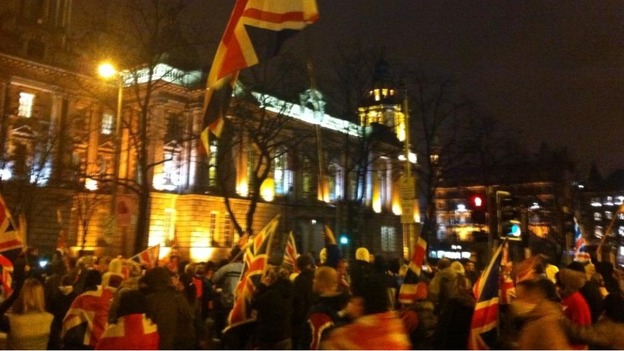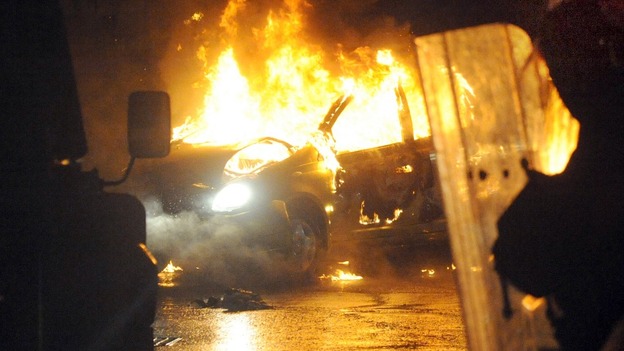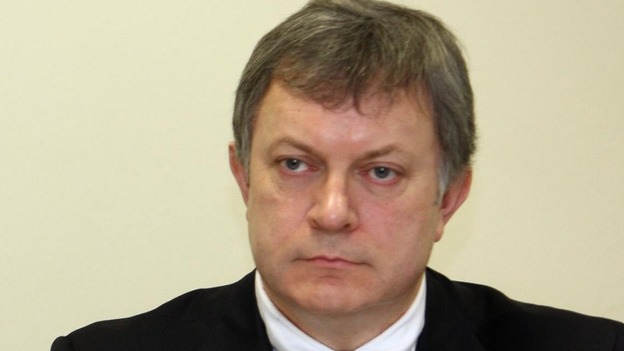The writer of this song is thought to be Patrick Carpenter, who was credited for these verses in "The Irish Singer's Own Book", of 1880 [thanks to sdog1981]. It is a traditional, narrative song that takes place during the famine and rebellion of 1848. This song is recorded as originating from County Tyrone.)
Oh father dear, I oft-times hear you speak of Erin's isle
Her lofty hills, her valleys green, her mountains rude and wild
They say she is a lovely land wherein a saint might dwell
So why did you abandon her, the reason to me tell.
Oh son, I loved my native land with energy and pride
Till a blight came o'er the praties; my sheep, my cattle died
My rent and taxes went unpaid, I could not them redeem
And that's the cruel reason why I left old Skibbereen.
Oh well do I remember that bleak December day
The landlord and the sheriff came to take us all away
They set my roof on fire with their cursed English spleen
I heaved a sigh and bade goodbye to dear old Skibbereen.
Your mother too, God rest her soul, fell on the stony ground
She fainted in her anguish seeing desolation 'round
She never rose but passed away from life to immortal dream
She found a quiet grave, me boy, in dear old Skibbereen.
And you were only two years old and feeble was your frame
I could not leave you with my friends for you bore your father's name
I wrapped you in my cóta mór in the dead of night unseen
I heaved a sigh and bade goodbye to dear old Skibbereen.
Oh father dear, the day will come when in answer to the call
All Irish men of freedom stern will rally one and all
I'll be the man to lead the band beneath the flag of green
And loud and clear we'll raise the cheer, Revenge for Skibbereen!
Many Irish people still do not know, that at the same time Irish farms were producing plenty of other foods, including corn, wheat, barley and beef. This food was taken away by the British Government, under the noses of the starving six million children, women and men. It was taken to wealthy England by the armed guard of the British Army, who were under orders to ethnically cleanse THE native Irish from Ireland.
The numbers of Irish involved surpassed the numbers in the Holocaust visited on the Jews later, by the Nazis. For confirmation see the the present Viceroyal in British Occupied Ireland Theresa Villiers, direct descendant of the then Vice royal in Ireland, George Fredrick Villiers (1800 - 1870).
While you are at it, you may ask Ms Villiers, about the current political internment without trial of Marian Price. The Irish Holocaust unlike the Jewish one has been airbrushed history by mentored, historical, revisionists. Still there is always hope that the truth will eventually see the light of day with wonderful artists like Declan O'Rourke.
A good contribution to truth and reconciliation in Ireland, can be kicked started by the British Government, making amends on a relative scale, to what the German Government made in war reparations and amends, for their holocaust visited on the Jews.
Below is and article from today's Irish Times by Siobhan Long:
Heading into history for songs of substance
SIOBHáN LONG
Percolation: a process that requires time and patience, both of which are commodities that come in short supply when it comes to the delicate art of planning a music career.
Declan O’Rourke seems to be an exception. Over the past 10 years, he has let a raft of thematically related songs insinuate themselves into the atmosphere while he continued to sate the appetites of fans, radio playlists and a wealth of artists looking for permission to borrow from his songbook. Josh Groban, Eddi Reader and Paul Weller have all, literally, sung the praises of O’Rourke’s Galileo (Someone Like You).
Recently, he’s written full orchestral arrangements for many of his songs, and performed them live with the RTÉ Concert Orchestra. It was an experience O’Rourke describes as akin to “having a huge palette of colours to play with”.
Aside from all that, he’s shared stages with Alison Krauss and Jerry Douglas, recently duetted with English folk’s Kate Rusby and shared more than a song or two with The Dubliners, but O’Rourke’s headline concert at this year’s Temple Bar Tradfest will see him occupy an altogether different space, where he’ll premiere a suite of songs he’s written over the past decade on the subject of the Irish Famine.
The germ that spawned this particular writing theme was O’Rourke’s discovery that his grandfather was born in a workhouse in Kinvara, Co Galway. Although he had only visited Kinvara once during his childhood, paintings by his grandfather of the local castle, which hung in the homes of many of his relatives, seeped so deeply beneath his skin that he felt what he describes as “a real spiritual connection” to the place. O’Rourke eventually moved to Kinvara, where he’s lived for the past six years. After picking up a book on the workhouses of Ireland, there was no turning away from a subject that’s preoccupied him ever since.
“That book had a big impact on me straight away,” he says. “And it was the personal stories that got me.” One story in particular, of a family from Macroom, struck O’Rourke with its stark and poignant juxtaposition of love and death.
“This man took his family into a workhouse, and all his children died very quickly,” he says. “So he brought his wife home, and, as she was dying, she was very cold, so he got down beside her and took her feet up on to his chest, under his shirt, and that’s where they both died, and that’s how they were both found.
“I was instantly taken by that image, and separate to my own emotional reaction, as a writer, that part of my brain was going ‘alert, alert, alert’. I was just instantly drawn to it, and had to write a song about it.”
The more he read, the more O’Rourke realised that one song could barely scratch the surface of a subject that he believes has been too often excised from our consciousness.
He also knew these songs were demanding a more traditional treatment, which would steer him away from the sound for which he’s best known, but towards something that he was drawn to from a very young age.
“My earliest memories of music are of Planxty and Paul Brady, and I can remember my legs not touching the ground, swinging them and listening to that music,” he says.
“I know there are flavours of that in my music, but I’ve also been afraid of it, because I know that sometimes, to be labelled as an Irish artist, or that you play Irish music, can really stunt your career – especially as a songwriter. The two don’t really go together.”
Serious subject matter
O’Rourke’s dilemma about his relationship with Irish music is one that mirrors the complexity of many artists’ relationships with what they call home. It seems, though, that he’s found a satisfying way to navigate a path towards it, without diluting his primary instincts for the sounds that define him.
“Even though I’ve always been drawn to this very serious kind of music, and I’ve never stopped loving it or playing it, in a way I feel like I’ve been holding on to it with one hand, and pushing it away with the other.”
Somehow the more O’Rourke delved into this oddly elusive subject of the Famine, the easier it was to bridge the gap between the music he’d grown up with and loved, and the music he found himself writing.
“You know, I knew almost nothing about the Famine. I was never taught about it in school, any more than that it happened,” he says. “There was a gap there that needed to be filled: not only a cultural gap, but a musical gap.
“I hadn’t come across any songs about it really. I had come across Frank Harte’s album, The Hungry Voice but I’ve put that aside and I’ll only listen to it when I’m finished. When you have an idea for a certain subject you want to write about, and someone else has already done a good job, if you listen to it, you might feel that you can’t write your own material, because you can’t get the other work out of your head.
So I just set about writing these new songs fairly painstakingly– because I tend to labour over songs anyway – and they were never going to come until I had read lots about the Famine first. It’s such a serious subject and I knew I didn’t want to get it wrong.”
Temple Bar Tradfest closes with a performance of Declan O’Rourke’s suite of songs on the Famine in St Werburgh’s Church on Sunday, January 27th. templebartrad.com
The Famine: Musical reference points
The Hungry Voice by Frank Harte (album)
The Pursuit of Farmer Michael Hayes by Planxty
Famine by Sinéad O’Connor
The Fields of Athenry by Pete St John
Kilkelly by Mick Moloney, Jimmy Keane and Robbie O’Connell


